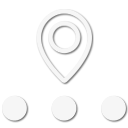
Pathfinder III

Pathfinder III

Member III
True! Here is a link to the channel/power limited for GMRS/FRS channels. The page also has links to the FCC pages for changes.GMRS license will be 10 years effective 9/28/2017.
FRS will be up to 2 watts also effective 9/28/2017.
I would also put GMRS above CB.
I have a question I have Midland micromobile and was going to upgrade the antenna but was wondering if it had to be tuned like a CBThank you Chris,I've been an Amateur Radio Operator since I was 14, since around 1987. I was a geek before it was cool. Ha ha.
Just a few things to mention, for the benefit of all:
I'm president of the local amateur radio club in Maple Valley, WA. Ask me anything, happy to help.
- HAM isn't an acronym, by the way. You don't need to capitalize it. Ham is just slang for Amateur Radio Operator. There are stories of why that is, but none are proven. I like to "ham it up" aka "talk a lot", so that definition works for me.
- I'm also surprised GMRS hasn't really taken off. Last I looked it was something like $65/5yrs per family which means all your vehicles can have GMRS radios in them. You can do fancy things with GMRS like build repeaters, which extends communications significantly. And you can have heavy duty, commercial radios, which high output power and good external antennas, which are all game changers. You can also share frequencies with those folks that are just carrying little FRS radios around. They may still have a hard time getting to you, but you can easily get out to them. I think GMRS should be the primary trail rig and frequencies. It's catching on, but CB is hard to dislodge from the culture.
- CB is limited to 5 watts which means there isn't much output power. And given the frequency, antenna size on a vehicle is going to hamper the ability to really do well on CB frequencies for "mid" distances. AND CB frequencies, to do well, are really, really dependent on the sun spot cycle, oddly enough, which is why CB was super popular in the 70's (high point in the 11year sun spot cycle) and why they pretty much suck now (low point). There are more technical reasons why CB is aweful, but I guess if you can hear the other person and they can hear you, to each their own.
- Ham radio is kind of overkill for trail communications, but not if you want to do fun radio things once your'e on a mountain top. There was a year long "event" in 2016 called National Parks On The Air. People would drive out to a national park, set up a temporary station for the day and see how many people they could contact. This is with a small, but very capable ham radio that operated on many frequencies and typically with 100 watts or less, intu a portable antenna. You can talk across the country easily on many frequencies and a portable antenna. You can't call someone specifically, unless you both agree to be on that frequency at that time, but if you just want general, or emergency long distance communications (with some limitations), ham radio is the way to go. The only thing two people need is radios and an antenna. Easy.
- Studying to get a license for ham radio is trivial, but you will want to learn a little about electronics. With the entry license ($15 and then take a test), you can talk on a few different frequency "bands" including those most commonly used for offroad adventures: 2m and 70cm (refers to the length of the radio frequency, 2 meters and 70 centimeters, ~145mhz, just above the FM radio band, and ~440mhz). You can also talk on 10m (28mhz) which is in the same neighborhood as the CB frequencies. 10m is also not good right now because of low sun spots.
Chris
Ham radio (FCC issued) call sign: KA0ZRW
GMRS call sign: WQXR317
Maple Valley, WA
2012 Jeep Wrangler Unlimited Sport, manual, 4" OME lift, JKS adjustable trackbars front and back, JKS sway bar quick disconnects, on 33's.
That was a very informative post. I'll definitely be asking you questions. So, due to the position of the sun spots you're basically saying that CB is not going to be great, period, until sun spots are in a different position? Other than trail comms with people next to you. Do you have any suggestions for what or where to learn about the Ham radio. (ie. websites/books) I'm a complete newb so forgive all the dumb questions.

Traveler III

Traveler III

Member III
Are you referring to countries or radio services?not sure if a license in one allows you to operate in the other as a visitor.

Traveler III
Countries, sorry, should have been more clear.Are you referring to countries or radio services?

Member III

Traveler III
